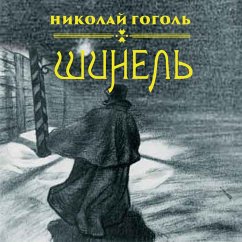
Dead Souls (MP3-Download)
Ungekürzte Lesung. 1297 Min.
Sprecher: Manylov, Vyacheslav

PAYBACK Punkte
2 °P sammeln!
"Dead Souls" is a work by Nikolai Vasilyevich Gogol, the genre of which the author himself designated as a poem. It was originally conceived as a three-volume work. The first volume was published in 1842. The almost finished second volume was lost, but several chapters survived in drafts. The third volume was conceived and not started, only some information about it remained.
The plot of the poem was suggested to Gogol by Alexander Sergeevich Pushkin, presumably in September 1831. Information about this goes back to the "Author's Confession", written in 1847 and published posthumous...
"Dead Souls" is a work by Nikolai Vasilyevich Gogol, the genre of which the author himself designated as a poem. It was originally conceived as a three-volume work. The first volume was published in 1842. The almost finished second volume was lost, but several chapters survived in drafts. The third volume was conceived and not started, only some information about it remained.
The plot of the poem was suggested to Gogol by Alexander Sergeevich Pushkin, presumably in September 1831. Information about this goes back to the "Author's Confession", written in 1847 and published posthumously in 1855, and is confirmed by reliable, although indirect, evidence.
The book tells about the adventures of Pavel Ivanovich Chichikov, the main character of the poem, a former college adviser posing as a landowner. Chichikov arrives in an unnamed town, a certain provincial "city N", and immediately tries to gain the trust of all any important inhabitants of the city, which he successfully succeeds in doing. The hero becomes an extremely welcome guest at balls and dinners. The townspeople of the unnamed city have no idea about Chichikov's true goals. And its purpose is to buy up or acquire free of charge dead peasants who, according to the census, were still listed as living by local landowners, and then register them in their name as living. The character, past life of Chichikov and his future intentions regarding "dead souls" are described in the last, eleventh chapter.
Nikolai Vasilyevich Gogol is the author of the greatest works of Russian literature: the stories "Dead Souls", "The Overcoat", "Taras Bulba", "Evenings on a Farm near Dikanka", "The Nose", "Viy", "Notes of a Madman", "Stroller", " Portrait", "Nevsky Prospekt", the comedy "The Government Inspector", "Marriage" and the collection of stories "Mirgorod". Gogol's life and work are filled with mystery and mysticism, thanks to which he was, is and will be the most mysterious writer, a brilliant satirist and an unrivaled playwright.
Dieser Download kann aus rechtlichen Gründen nur mit Rechnungsadresse in A, D ausgeliefert werden.













